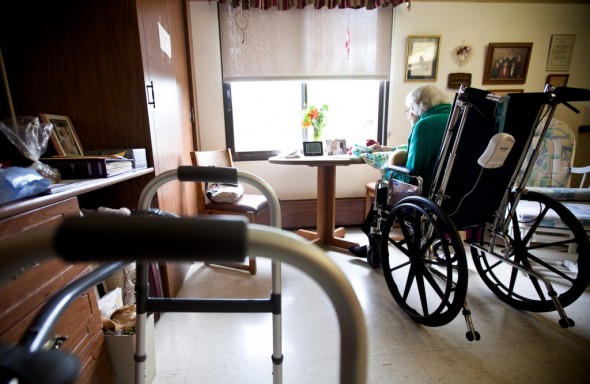<h2 style="margin: 0cm 21.2pt 10pt 14.2pt;text-align: justify"><strong>Increasingly Challenging Future</strong></h2>
<p style="margin: 0cm 21.2pt 10pt 14.2pt;text-align: justify">Nursing homes will face an increasingly challenging future in the next few decades, and while there are many concerns about the ageing population putting increasing pressure on these homes, there are also other difficulties that may place additional pressure on these homes. Being able to understand what these challenges are, as well as how they can affect the nursing home of the future, will allow nursing home managers to create plans and put them into action to increase the homes&#8217; resilience to the challenges of the next 20 years.</p>
<h2 style="margin: 0cm 21.2pt 10pt 14.2pt;text-align: justify"><strong>Aging Community </strong></h2>
<p style="margin: 0cm 21.2pt 10pt 14.2pt;text-align: justify">The biggest challenge of the immediate future is the increasing age of the current UK population. With more people requiring nursing home care, this will place more pressure on the homes already in existence, and also increase the demand for more homes. Government assistance will have to be increased in order to meet this demand, but nursing homes will also have to become better organised, and make use of increasing technology to meet the needs of older residents. This will include both medical and software based knowledge, and homes will have to increase their knowledge of medical developments in order to meet the needs of new patients.</p>
<p style="margin: 0cm 21.2pt 10pt 14.2pt;text-align: justify">Although the ageing population is a big concern, a second challenge will be in recruiting staff from the working population. This will become increasingly difficult as the latter population shrinks, with competition from the NHS, private hospitals and businesses serving older people in their own homes. Nursing homes will have to meet this challenge by either training existing staff and developing schemes to retain staff for longer, as well as making a career in the care industry seem more inviting to potential employees.</p>
<p style="margin: 0cm 21.2pt 10pt 14.2pt;text-align: justify">The medical needs of this ageing population are also going to become more challenging in the next few decades, as older people will have a variety of health conditions which, in the past would have required hospital treatment or would have already caused death. Older people with chronic medical issues including diabetes, asthma, dementia and their connected conditions, along with those who have already survived major illnesses, may make up an increasing proportion of people living in nursing homes, and this will place increasing pressure on staff members.</p>
<h2 style="margin: 0cm 21.2pt 10pt 14.2pt;text-align: justify"><strong>Going Greener</strong></h2>
<p style="margin: 0cm 21.2pt 10pt 14.2pt;text-align: justify">An additional challenge to be faced by many nursing homes is their role in the external community. Government legislation is likely to increase pressure on residential homes to increase environmentally friendly policies such as recycling, energy conservation and management of resources in the home, which might place more pressure on staff and financial resources. More legislation scrutinising care homes is also likely to be enacted within the next two decades, and this will also have an impact on how the residential home is viewed within the wider community. There will also be issues with reputations in the community, with more nursing homes needing to provide outreach services. Being involved in the community, particularly with charities, local amenities and by increasing presence in the community can benefit nursing homes, but will also need careful monitoring of these interactions. All of these issues mean that community relations will become a big challenge for homes in the next 20 years.</p>
<p style="margin: 0cm 21.2pt 10pt 14.2pt;text-align: justify">Steve Sharp is the Director for Barton Park Nursing and Retirement Home, established for more than 30 years it is one of the finest care homes in the North East of England.</p>

The Challenges Facing Nursing Homes In The Next 20 Years
